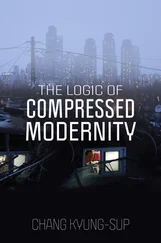She approached him and told him that she would fetch him some water if he liked. He didn’t look up or reply, just shoveled the loosened earth and rock. She stood there for a moment and then ran back to where the kitchen aunties worked and made sure to catch the eye of Reverend Tanner, who followed her with his gaze as he conducted Bible study for the younger children beneath the pavilion. When she got back to Hector she offered him the tin bowl of water. Hector paused from his shoveling and quickly drank it all.
“Thanks,” he said, again gripping his shovel.
“Do you want more?”
“No.”
“I can bring you some food.”
He shook his head and turned to resume working.
She said, “Could I help you?”
“No.”
“I’m strong. Let me try,” she said. It was then that Reverend Tanner and the group of younger children approached the edge of the low hillside. Hector’s back was turned to them. Seeing her chance, June reached around him for the pickax.
“Leave that alone,” he said. “It’s too heavy. Just go, okay?”
But June was already removing her light wool sweater, rolling it up over her head. Her blouse was untucked from the band of her long skirt and as it was pulled by the sweater she let it ride up, over her bare chest, taking her time to unfurl the sweater from her head before the fabric naturally fell and draped down again. From his downcast eyes she knew her breasts were clearly showing through the thin white shirting. She let her sweater fall to the ground and when he didn’t move she stepped quickly to him, as if he’d pulled her in an embrace. He tried to push her away but she clung tighter to him the more he squirmed and she was exhilarated by how tenacious she could be, how resilient, though a reciprocal, near-hungering ache uncoiled in her gut from the hard pads of his hands. Finally she pushed away from him, letting herself fall to the ground.
“What the hell is wrong with you?” Hector shouted.
She expected to hear Tanner’s voice but when she looked up she glimpsed only his dark minister’s jacket and the tops of the children’s heads bobbing away as they hiked back toward the compound.
“Don’t you ever do that again,” Hector growled. “Don’t you ever touch me like that.”
“I won’t!” she said defiantly.
She put on her sweater and ran off. In the central yard it was nearly lunchtime, the younger children playing tag while the aunties set up tables outside, as it was a warm fall day. Sylvie and several older girls were bringing out utensils and cups and she joined them. Reverend Tanner was already sitting at one of the tables, watching their play with an opened Bible before him. June was ready to tell him a broader story of what Hector had done, or tried to do, but Tanner said nothing to her. He only glanced at the freshly soiled patches on her skirt, on her sleeves, and although this surprised her she realized that he couldn’t talk about such things in front of his wife and other girls. In fact he didn’t need to talk about them at all, for she had done the necessary work, and as she began setting down chopsticks and spoons she felt that she was a wellspring and that Hector was a leaf just fallen on the surface, soon to be tided inexorably away.
YET HECTOR DIDN’T GO AWAY. It seemed impossible to her, but Reverend Tanner made nothing of witnessing her and Hector down in the ditch. He didn’t seem to care. A whole week went by, and at the end of it the reverend even talked animatedly with Hector about the sections of concrete piping just delivered by truck. Tanner even decided to help Hector with the job of joining the sections, suspending his schedule for two days while young Reverend Kim from Seoul came down to help Sylvie with his teaching and liturgical duties. June and some other children watched them from a perch above the gently sloping hillside. Each thick-walled concrete section was a half-meter round and as long as a man and it took them past dusk of the first day to lug all the sections of pipe down the run of the ditch. It was simple work and they didn’t have to say much of anything to each other and labored in a steady rhythm, lifting a section from the pile beside the main outhouse and walking it down sideways or with one of them backpedaling. As night fell one might have thought the two men were interring corpses in a strange, threading line of a mass grave. The next day it rained lightly and they shifted the sections, using shovels for leverage in order to connect them, and by the end when they shook hands ever so briefly they were covered brown-gray from head to toe in mud and joining mortar.
Sylvie was again not well. Maybe it was the pressure of her husband’s new wish for a child, or her own guilt about Hector, or else that she was craving him even as she knew she should not have him, but June could see the parched quality of her skin, the streaks of red at her elbows where she constantly scratched at herself showing through her blouse sleeve. She needed medicine for her kit.
June kept telling herself that she could be the remedy. She told herself to keep disciplined, to stay the course she had laid out, to remake herself along the lines of an entirely different girl: someone who was not an orphan at all, had not lost anyone in her life, much less witnessed any horrors or degradation. She was a normal child who would soon have a normal life. And it was shortly borne out: after the morning prayer Reverend Tanner announced that at the end of October young Reverend Kim, who substituted for him when he was away, would take over as director of the orphanage. “But what will you do?” a boy obtusely asked. “Mrs. Tanner and I must be leaving,” Tanner solemnly replied. “We have to go back to America.” There was a long second of silence and then all the children were crying, many outright wailing, some fallen to the ground, the rest crowding around him and Sylvie, both of whom were crying, too.
Only June did not fret, knowing that she would soon be asked to prepare for the journey. She knew from others they would fly first to Japan, then go on to either Alaska or Hawaii, before landing in San Francisco. From there they would take a shorter flight to Seattle, where the Tanners were from, a place that Sylvie had once described to her as a city shrouded in constant rain and fog, a place on earth but stuck in clouds, where one always felt the weight of dampness in one’s clothes and hair and skin, which was strangely comforting, once gotten used to. Naturally some found it oppressive. But June liked the idea that the weather was a near constant, like a too-loyal friend, something to bear around and tolerate and maybe cherish, even if it would never leave you alone. And she knew that she and Sylvie would be just that for each other, and in time perhaps she could prove the same for Reverend Tanner, who would come to see her not as a bane he had yielded to but the living picture of his grace.
So she organized and reorganized her small footlocker, which every child had, discarding the pairs of socks that were past darning, resolving to wear the ugly olive-drab trousers as often as she could to preserve her two decent blouses and skirt, which she snapped in the air to rid of dust and then tightly folded. She polished her ill-fitting leather shoes, knowing that she would have to wear them on the plane. She went through her workbooks and tore out the pages marred by idle sketches or doodles and she honed her three pencils against the floorboards to sharp pinpoints. She cleaned the footlocker itself, removing the grime from the handle with a kerosene-dipped rag and sanding the rust from the rivets and steel-clad corners. Lastly she borrowed a pair of good scissors from the aunties and trimmed her own hair (which was in a rough, unkempt pageboy because she never sat long enough for them to cut it properly), smoothing out the line of the ends and pinning up one side like some of the other girls did but with the fancy, large tortoiseshell hair clasp Sylvie had given her very early on. It was in the shape of a butterfly, which she loved, but she had not used it even once out of fear of losing or breaking it. But she was wearing it constantly now, to remind herself to keep her hair and face and fingernails neat and clean, to be polite, even smiling and pretty, just as the younger girls who had been adopted before had been polite and pretty, so eager to please, but mostly because she was confident that her time here was truly ending, that her life was about to begin anew.
Читать дальше











